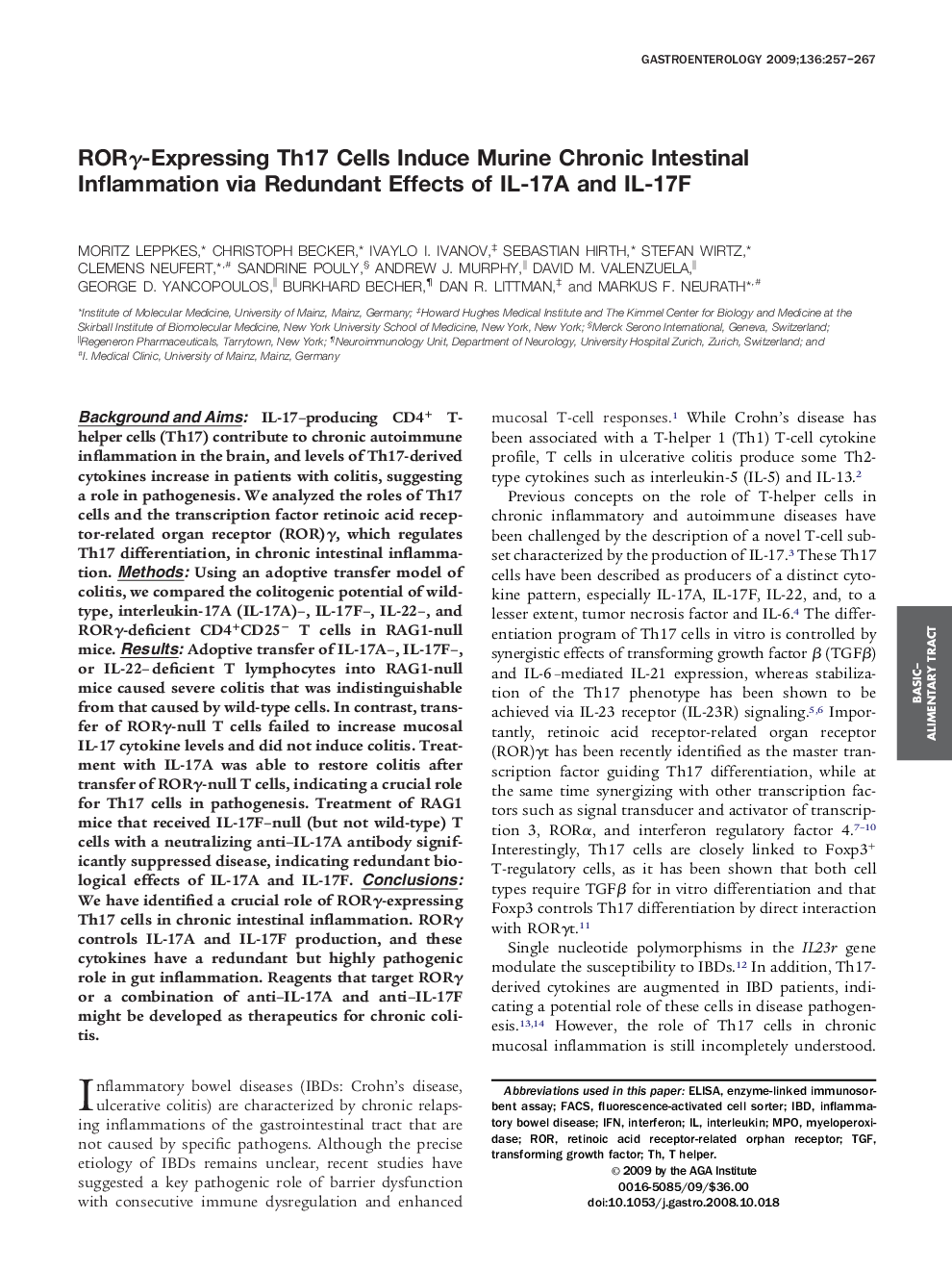| Article ID | Journal | Published Year | Pages | File Type |
|---|---|---|---|---|
| 3298889 | Gastroenterology | 2009 | 11 Pages |
Background and AimsIL-17–producing CD4+ T-helper cells (Th17) contribute to chronic autoimmune inflammation in the brain, and levels of Th17-derived cytokines increase in patients with colitis, suggesting a role in pathogenesis. We analyzed the roles of Th17 cells and the transcription factor retinoic acid receptor-related organ receptor (ROR)γ, which regulates Th17 differentiation, in chronic intestinal inflammation.MethodsUsing an adoptive transfer model of colitis, we compared the colitogenic potential of wild-type, interleukin-17A (IL-17A)–, IL-17F–, IL-22–, and RORγ-deficient CD4+CD25− T cells in RAG1-null mice.ResultsAdoptive transfer of IL-17A–, IL-17F–, or IL-22–deficient T lymphocytes into RAG1-null mice caused severe colitis that was indistinguishable from that caused by wild-type cells. In contrast, transfer of RORγ-null T cells failed to increase mucosal IL-17 cytokine levels and did not induce colitis. Treatment with IL-17A was able to restore colitis after transfer of RORγ-null T cells, indicating a crucial role for Th17 cells in pathogenesis. Treatment of RAG1 mice that received IL-17F–null (but not wild-type) T cells with a neutralizing anti–IL-17A antibody significantly suppressed disease, indicating redundant biological effects of IL-17A and IL-17F.ConclusionsWe have identified a crucial role of RORγ-expressing Th17 cells in chronic intestinal inflammation. RORγ controls IL-17A and IL-17F production, and these cytokines have a redundant but highly pathogenic role in gut inflammation. Reagents that target RORγ or a combination of anti–IL-17A and anti–IL-17F might be developed as therapeutics for chronic colitis.
